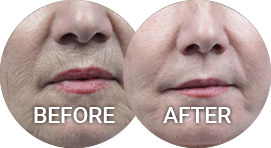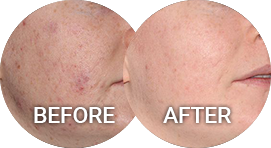The topic on virtually everyone’s mind in April 2020 is, of course, the COVID-19 pandemic and what it means for their safety and health. Dr. Kevin Chan and the team at Pineapple Health urge their patients to follow effective social isolation practices to protect both themselves and their communities by slowing the spread of the virus.
Contents
Current COVID-19 activity
As you may be aware, conditions change daily. At the time of writing, Arizona had over 2,500 confirmed cases of COVID-19 infection, including 73 deaths. Almost 1,500 of these were in Maricopa County and the Phoenix metropolitan area. The Arizona Department of Health Services (AZDHS) describes community risk as increasing, with some areas experiencing heightened risk. These statistics change quickly, so the AZDHS recommends the Centers for Disease Control and Prevention’s (CDC) COVID-19 website for the most up-to-date information.
Knowing the symptoms
Like the cold or flu, the signs of the novel coronavirus that causes COVID-19 can overlap with other conditions; the presence of the virus can only be confirmed with appropriate testing. It can take from two days to two weeks for symptoms to appear, which means you can have the virus and never display symptoms or feel unwell. This is one reason behind social isolation as a virus control factor. Those who spread the disease may be completely unaware that they’re infected.
The “big three” COVID-19 symptoms are:
- Fever
- Tiredness
- Dry cough
Some people develop less-common symptoms, and these usually stay mild and show a gradual onset. These secondary symptoms include:
- General aches and pains
- Runny nose
- Nasal congestion
- Sore throat
- Diarrhea
The best protection against coronavirus is avoidance, but since the virus is invisible, can be airborne, and is able to survive for a period of time on some surfaces, it’s difficult to know how well you’re avoiding it.
Wash and sterilize your hands frequently
Using alcohol-based (at least 60%) hand sanitizers and washing your hands frequently and thoroughly with soap and water kill the virus before you have a chance to become infected by touching your mouth, eyes, or face.
Maintaining safe distances from other people helps to minimize the chance of breathing in airborne viruses. Called aerosol transmission, coronavirus is small enough to travel with tiny drops of liquid accompanying a sneeze. Distance equals safety. Make sure you keep a minimum distance of six feet.
Practice respiratory hygiene
Sneezing into your arm or a tissue prevents any aerosol contagion you carry from infecting others. This includes cold or flu viruses as well as the novel coronavirus. If you are one of those who have coronavirus but no COVID-19 symptoms, practicing care protects those around you, and it could be a critical factor in reducing community spreading until such time as widespread testing and treatment catches up.
Strengthening your immune system
Your immune system is a crucial component in your overall health. Those with strong immune systems are more likely to be in the 80% of the population who recover from COVID-19 without hospital care.
Keep your immune system strong with self-care by:
- Getting adequate sleep
- Exercising moderately for 30 minutes, five days a week
- Eating plenty of fruits, vegetables, and whole grains
- Moderating your alcohol intake
- Discontinuing tobacco use
- Washing your hands frequently
During the COVID-19 lockdown, you may still have health issues unrelated to the virus. Contact Pineapple Health by phone at 480-531-6001 or send us a message online to discuss the problem and how you should best proceed. We’re still here to help, but please be patient, since call volumes may be heavy, and inboxes may be full.




